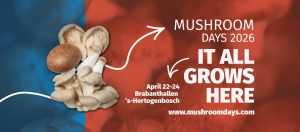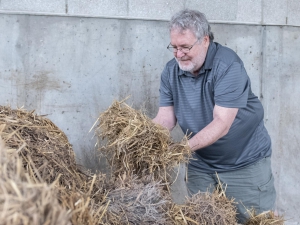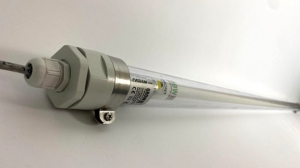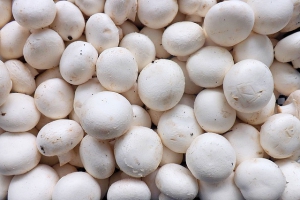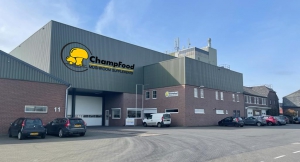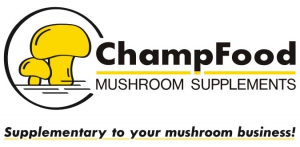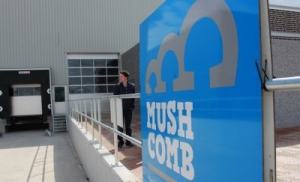Registration open for the Dutch Mushroom Days 2026
Preparations are in full swing for the next edition of the Dutch Mushroom Days, taking place from 22–24 April 2026 at the Brabanthallen in ’s-Hertogenbosch (the Netherlands).
Following the successful 2023 edition, the upcoming event promises once again to be a key global meeting point for the mushroom industry, bringing together participants and visitors from all continents. The programme includes a vibrant exhibition, networking opportunities, and the festive Network Party with the presentation of the Ambassador of the Mushroom Industry Awards.
Companies interested in exhibiting can still register until 15 November 2025.
More information about the organizers and registration you can find here.
We are very happy to announce David M. Beyer, Professor of Mushrooms, to our platform. To start, David briefly explains about his background and involvement in the mushroom industry.
For almost 45 years I have been involved in the mushroom industry, first and always as a student of mushroom science and then as a commercial mushroom grower.
I worked 12 years growing mushrooms at the largest mushroom company in Canada with a tray farm, 3 shelf farms and a Dutch-style bulk tunnel farm. As Director of Growing, I provided technical assistance and training to the growers at all 5 farms.
For the past 34 years I have worked at Penn State as the director of the mushroom extension program for the North American commercial mushroom industry. My previous commercial growing experience provides practical insight into the development and organization of my educational programs that address the changing needs of the industry.
My research program involves all aspects of mushroom growing from composting, compost nutrition for the mushroom, disease management (IPM), and cultural factors affecting mushroom yield, size, and quality. I have developed and conducted several customized grower educational programs for mushroom farms and suppliers.
For almost 45 years I have been involved in the mushroom industry, first and always as a student of mushroom science and then as a commercial mushroom grower.
I worked 12 years growing mushrooms at the largest mushroom company in Canada with a tray farm, 3 shelf farms and a Dutch-style bulk tunnel farm. As Director of Growing, I provided technical assistance and training to the growers at all 5 farms.
For the past 34 years I have worked at Penn State as the director of the mushroom extension program for the North American commercial mushroom industry. My previous commercial growing experience provides practical insight into the development and organization of my educational programs that address the changing needs of the industry.
My research program involves all aspects of mushroom growing from composting, compost nutrition for the mushroom, disease management (IPM), and cultural factors affecting mushroom yield, size, and quality. I have developed and conducted several customized grower educational programs for mushroom farms and suppliers.
We are very pleased with this international player in the mushroom industry on our platform.
Here's some history on the company's inception
Cees Ribbens, a coatings manufacturer for the marine industry, was tasked with creating a gas-tight coating for refrigeration units around 50 years ago. His solution proved to be a success and the company expanded globally. After Mr. Ribbens' passing in the 1980s, his successor renamed the company 'RibbStyle,' meaning 'in the style of Ribbens.'
RibbStyle’s continued growth and dedicated team
Since their establishment, they have seen consistent growth and expansion. They currently have three branches and collaborate with distributors worldwide. Their goal is to continue expanding internationally, while remaining focused on local visibility and presence.
Their team
At their company, they have a team of twelve passionate employees. As a small business, they work very closely together and flexibility is a must. Their goal is to establish a welcoming and dependable environment for everyone they engage with.
Their commitment to quality
Quality is the cornerstone of their business. They utilize a multi-layer technique that includes a reinforcement layer. By combining these layers into a cohesive system, they provide their customers with a long-lasting solution. Furthermore, RibbStyle holds several certificates that highlight the standards they integrate into their daily operations.
RibbStyle's Expertise in Mushroom Cultivation
RibbStyle has a variety of branches, one of which specializes in mushroom cultivation. The process of growing mushrooms, such as mushrooms, is highly specialized, and creating the ideal growing climate is crucial. RibbStyle possesses the necessary knowledge and expertise to properly manage your compost tunnels and cultivation cells. They understand how important it is to have a vapor-tight coating to prevent disease and contamination. Additionally, they are well-equipped to handle repairs and maintenance to ensure your mushrooms are properly cared for.
More than just coatings
Having traveled around the world, the’ve seen both beautiful and prosperous places, as well as impoverished ones. In December 2010, a group of their enthusiastic colleagues established the ‘Color the World foundation’. The foundation's primary objective is to bring more color to the world by performing construction and painting work for the underprivileged.
To learn more about RibbStyle or get in touch with them, please check out their website.

How to choose lamps for a mushroom farm? A guide
We don't know of mushroom farms that aren't looking for ways to improve profitability or increase savings in the mushroom industry.
Mushroom lighting is a piece of equipment that affects the profitability of the business and is optimizable in many ways.
Based on our experience of working with mushroom farm owners around the world, we have prepared a guide that is likely to be of great value to both existing mushroom farms and those that are planned or under construction.
We invite you to read the guide here.
A World of Mushrooms
A World of Mushrooms: Where Your Favorite Fungi are Produced
Mushrooms are one of the most versatile and nutritious foods on the planet, with a wide range of flavors and textures that can be used in a variety of dishes. From the delicate and savory shiitake to the rich and meaty portobello, there is a mushroom for every taste and occasion.
But have you ever wondered where your favorite mushrooms come from? Here's a breakdown of some of the most popular mushrooms and where they are primarily produced around the world.
Button Mushrooms
Button mushrooms are the most commonly produced mushrooms worldwide, and are grown in many countries including the United States, China, India, the Netherlands, Poland, and Canada. These versatile mushrooms have a mild, earthy flavor and can be used in a variety of dishes, from soups and stews to pizza toppings and salads.
Shiitake Mushrooms
Shiitake mushrooms are a popular ingredient in Asian cuisine, and are primarily produced in countries such as China, Japan, and South Korea. They are also grown in other countries, including the United States, Canada, and the United Kingdom. Shiitake mushrooms have a rich, savory flavor and a meaty texture that makes them a great addition to stir-fries, soups, and noodle dishes.
Portobello Mushrooms
Portobello mushrooms are a larger and more mature form of the button mushroom, and are primarily produced in the United States, Canada, the United Kingdom, and Australia. These mushrooms have a rich, meaty flavor and a firm texture that makes them a popular meat substitute in vegetarian and vegan dishes.
Oyster Mushrooms
Oyster mushrooms are a delicate and flavorful mushroom that is grown in many countries, including China, Japan, South Korea, the United States, and the Netherlands. These mushrooms have a subtle, sweet flavor and a delicate texture that makes them perfect for sautéing, stir-frying, or adding to soups and stews.
Enoki Mushrooms
Enoki mushrooms are a small, thin, and delicate mushroom that is primarily produced in Japan, South Korea, and China. They are also grown in other countries, including the United States and Canada. Enoki mushrooms have a crunchy texture and a mild, slightly sweet flavor that makes them a great addition to salads, stir-fries, and soups.
Morel Mushrooms
Morel mushrooms are a highly sought-after and flavorful mushroom that is primarily produced in the United States, Canada, and Europe. These mushrooms have a nutty, earthy flavor and a sponge-like texture that makes them perfect for sautéing or adding to sauces and gravies.
Truffle Mushrooms
Truffle mushrooms are a rare and expensive delicacy that are primarily produced in Italy, France, and Spain, but are also grown in other countries such as the United States, Australia, and China. These mushrooms have a rich, earthy flavor and a pungent aroma that makes them a popular ingredient in gourmet dishes such as pasta, risotto, and scrambled eggs.
In conclusion, the world of mushrooms is vast and varied, with a wide range of flavors and textures that can be used in a variety of dishes. Whether you prefer the delicate flavor of oyster mushrooms or the rich, meaty taste of portobello mushrooms, there is a mushroom out there for every palate. So the next time you enjoy a delicious mushroom dish, take a moment to appreciate the diverse and fascinating world of fungi that made it possible.
I know what I will be cooking tonight!
Fred Musc
ChampFood, leading through innovation
ChampFood International is located in Vierlingsbeek, North Brabant. They produce ChampFood, a natural and organic mushroom supplement, which is available worldwide.
Their company was founded in 1990 by Toon Donkers and Jan Baltussen and has since then been active as producer, supplier, and distributor of ChampFood supplementary food for the mushroom industry.
From the start, the founders worked on higher productivity - and therefore bio-efficiency - of the fully grown compost, by developing an improved type of supplement.
In addition they developed a specific treatment that ensured that the added proteins were released even more equally during the flushes.
In 2008 the company moved to its current production location, enabling further growth and innovation. In addition, the team was reinforced with the arrival of Eric Vernooij, who has enriched the sales team with his knowledge of mushroom cultivation.
Technological development
Through the continuous use of the latest technology in terms of absorption requirements and based on in-depth nutritional and practical knowledge of composting and cultivation, ChampFood has become a market leader with a leading product; ChampFood now supplies a wide variety of products for supplementing the cultivation of white and brown mushrooms and other mushroom exotic species all over the world.
An important part of their success is the good relationship with their customers. Intensive cooperation with their customers enables them to adapt customised supplement compositions to the type of compost/recipe. Their customers let them know that they appreciate that flexibility. As a result, they have developed a large number of customized recipes for their customers over the years.
Challenge
A rapidly growing world population that demands more food is a difficult issue. Because the mushroom sector is relatively flexible and can therefore respond well to these problems, ChampFood sees many developments in mushroom cultivation. Fortunately, a lot of knowledge is shared within the mushroom industry, often originating from Dutch roots.
The production of mushrooms is possible with raw materials such as straw, horse, and chicken manure and the harvest can take place both manually and mechanically. Innovative hand harvesting systems are increasing, although they require high investments. The costs of raw materials and energy are also increasing. It is therefore important that the harvest produces enough to compensate for investments and costs.
The importance of efficiency
In the future, the viability of a production company will no longer be determined solely by the maximum number of kilos of mushrooms per m2, but also by keeping the costs per cultivation area as low as possible, so that the highest possible return can be generated. This requires the highest possible bio-efficiency of the substrate. Supplementing the substrate will therefore become even more essential. It now appears that the worldwide production of mushrooms is 15% to 20% higher when using a supplementary substrate. ChampFood is convinced that supplementation will therefore play an even more significant role, especially since the cost of supplement is less than 5% of the total costs per m2 of cultivation area (not even taking into account energy and labor costs). This makes the application of supplements a very healthy and solid investment.
ChampFood would like to welcome you during the Mushroom Days at their stand number 53.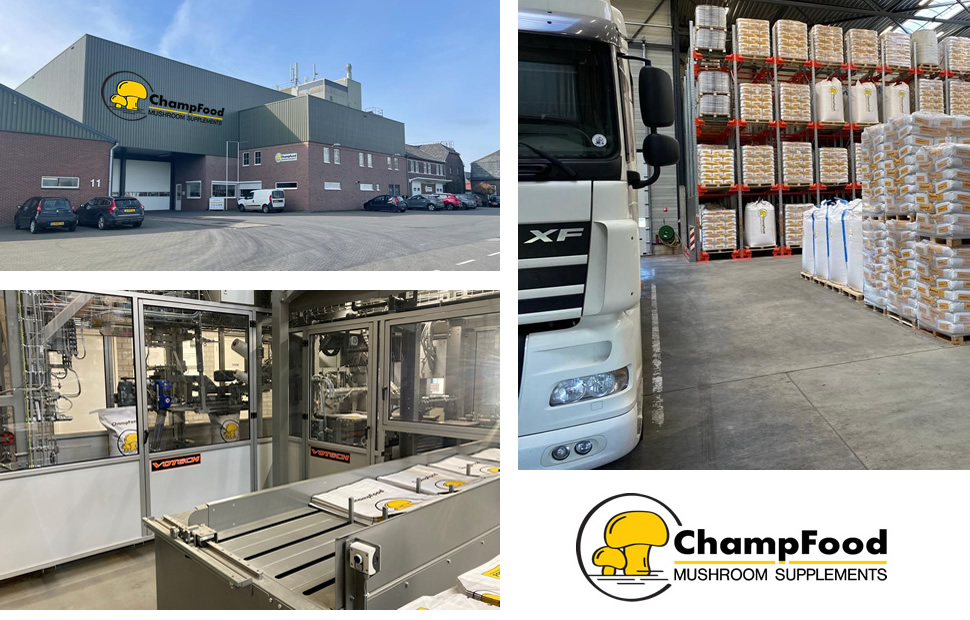
Energy crisis hits mushroom industry hard
The energy-intensive production of edible mushrooms is currently particularly affected by the impact of the Ukraine war on the procurement of electricity and gas for food production. This became clear once again at an extraordinary meeting of the Board and Advisory Council of the Federation of German Mushroom and Cultivated Mushroom Growers (BDC) on 6 September 2022 in Hanover.
During the intensive exchange with representatives of the Federal Association of Energy Users (VEA), climate control in the cultivation rooms and cooling of the harvested products, but also substrate production as well as hygienisation of the substrate and disinfection of the rooms were named as extremely energy-intensive processes.
Despite this, mushroom farms have so far not been able to participate in the energy cost reduction programme of the Federal Office of Economics and Export Control (BAFA), as they do not belong to the listed sectors. Given the amount of energy required in the cultivated mushroom sector, this is absolutely incomprehensible for the BDC representatives. The board estimates that the electricity and gas price increases alone could generate additional costs of more than 75 million euros for the industry, should the prices for electricity and gas remain at this level or even rise further. Translated with www.DeepL.com/Translator (free version).
Please read the full article here. (in German)
Source: Bund Deutscher Champignon- und Kulturpilzanbauer e.V.
By Ray Samp, Agari Culture Mushroom Consulting Services
ChampFood International is a market leader in the worldwide mushroom industry. For that reason they are in contact with many renowned composters, mushroom growers and consultants.
Due to their international network they are familiar with the latest developments, trends and newly acquired knowledge.
Frequently they ask their international contacts to share their experiences and knowledge with them.
This time it’s Ray Samp’s turn. They asked Ray to share his thoughts regarding the differences between Dutch and US mushroom growing strategies.
Why do they do what they do?
Mush Comb turns 25!
Family business Mush Comb from Horst celebrates 25th anniversary
1 January 2021 marks the 25th anniversary of the Horst-based company Mush Comb! What better time to shine the spotlight on this successful family-owned business!
Global leader
On New Year’s Day 1996, Jeu Holtermans started his own business - Mush Comb. In repairing and selling second-hand machines, he succeeded in identifying and filling a gap in the market for mushroom culture. In 2004, his 21-year-old son Bob joined the family business team, and in 2007 they decided to reinvent and refocus the business. Since then, the company has focused on producing new and innovative cutting-edge machines. The new business strategy demanded a major investment, but the benefits soon became apparent. The company’s revenues have quadrupled since 2007, and the family business has developed into a world leader in supplying innovative high-quality machines.
Please read their full article here.
We congratulate Mush Comb and wish them lots of succesful and innovating years to come!














